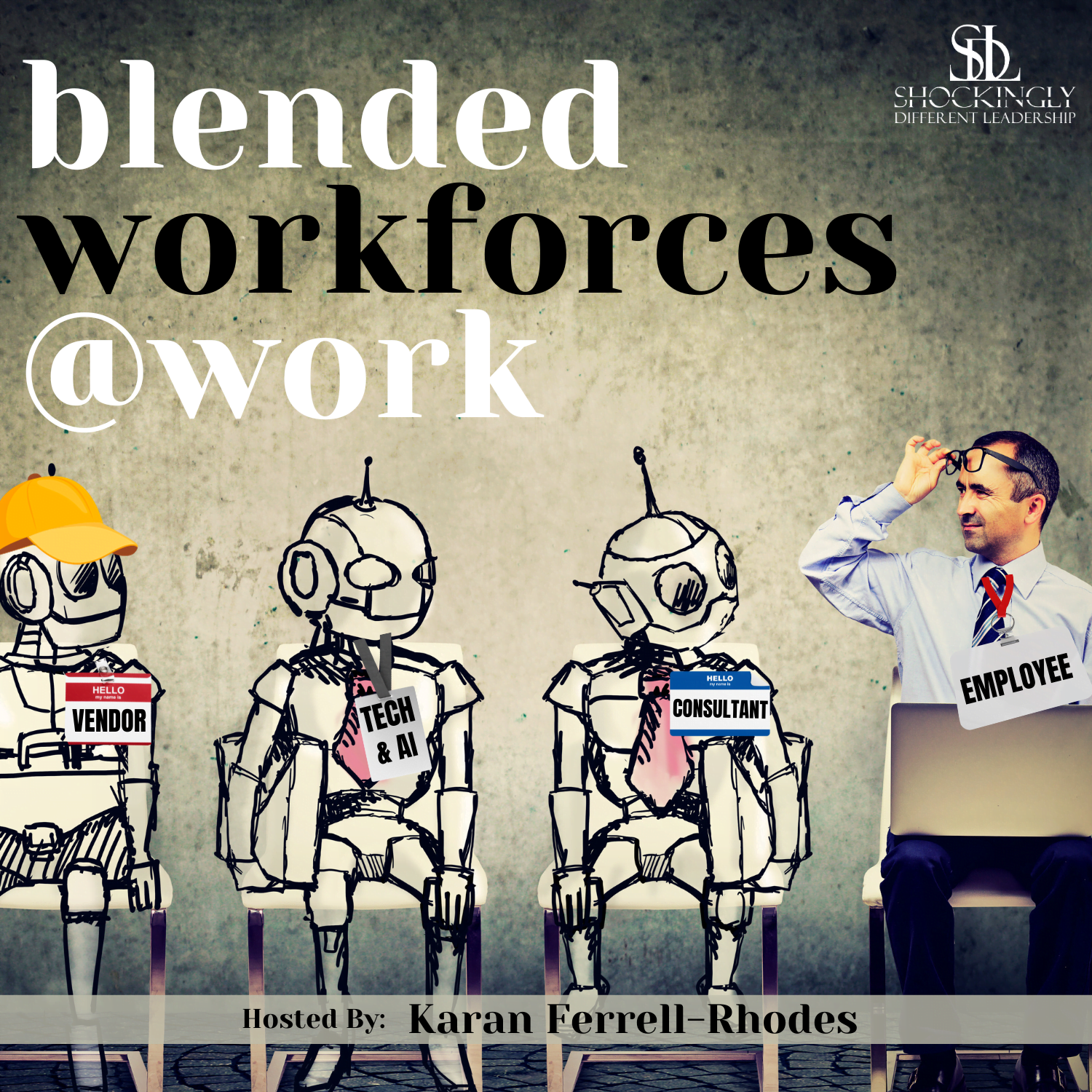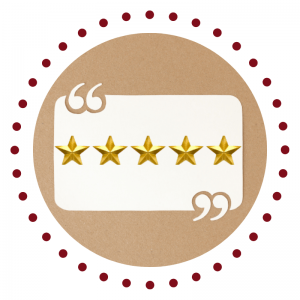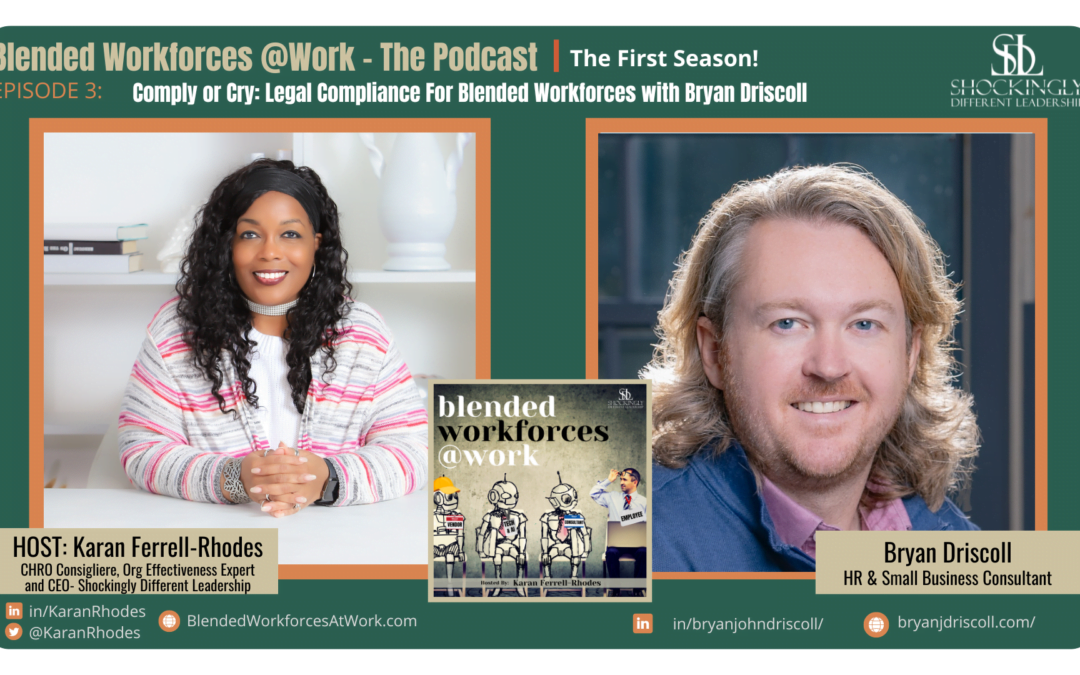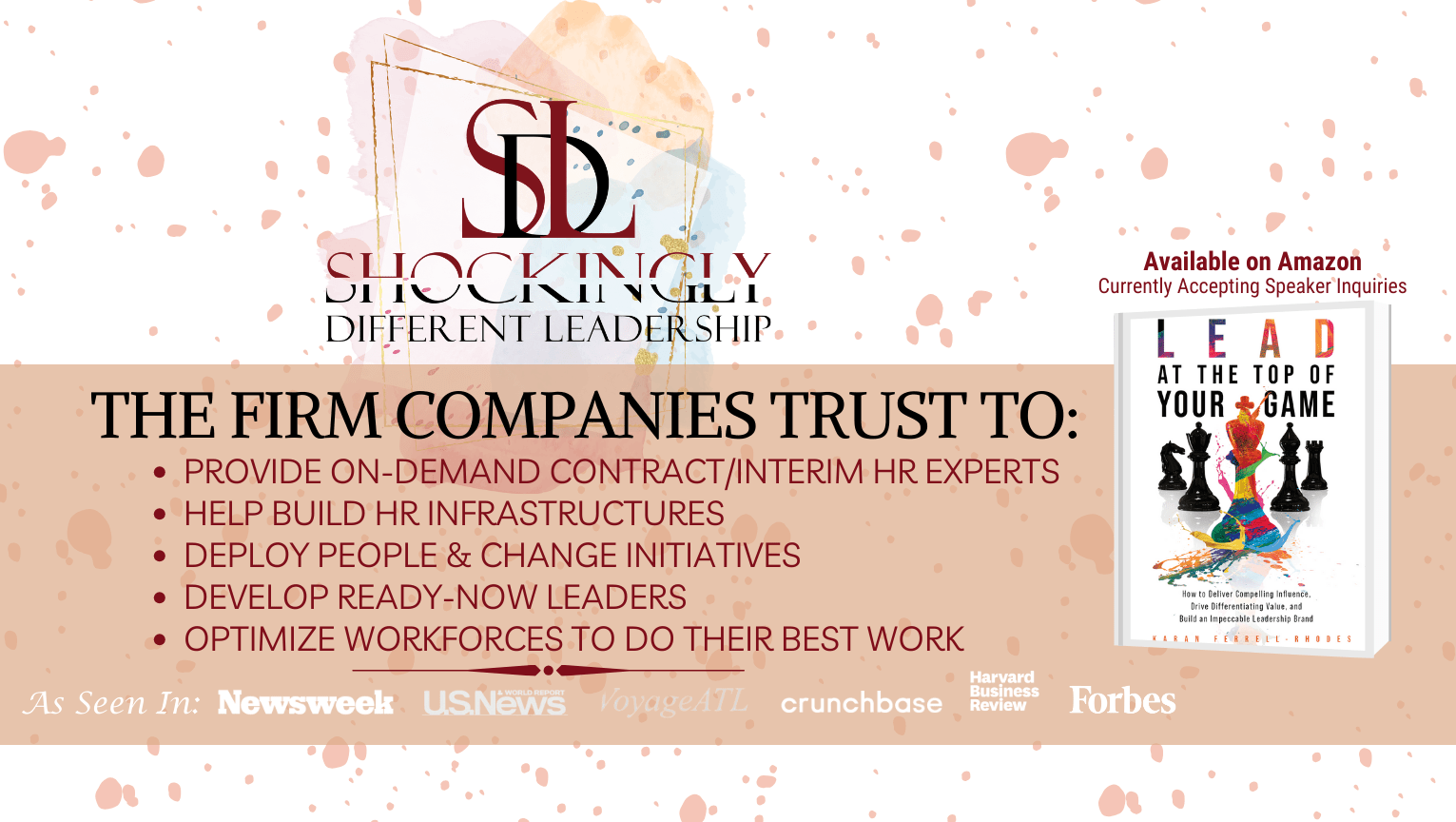IN THIS EPISODE, KARAN FERRELL-RHODES INTERVIEWS BRYAN DRISCOLL.
Maintaining compliance with employment regulations is vital to ensure the health & longevity of any organization. In blended workspaces, the compliance aspect calls for a little more attention, given the different types of workers involved in the workplace and its culture.
Bryan Driscoll is an HR & Small Business Consultant & Legal Content Writer. Bryan’s expertise includes employment law compliance, talent recruitment and selection, employee training and classification, budget allocation and accounting, payroll and benefits management, and ensuring efficient business processes. Throughout today’s conversation, we delve into Bryan’s insights on maintaining legal compliance, tips & tricks for finding and working with external talent, and more.

Posted by
SDL Media Team
Rather view our video podcast?

WHAT TO LISTEN FOR:
- Identifying and maintaining proper worker classifications within an organization to stay compliant with employment laws.
- How do we treat external contractors & suppliers as a part of the team?
- Best practices for sourcing external talent that fits your organization.
- Why do organizations need to allocate resources for adequate paid sample or test work when hiring?
- How independent contractors should maintain healthy boundaries when providing sample work to organizations.
“[My advice is to] understand all compliance regulations on what you can and cannot do.”
FEATURED TIMESTAMPS:
[03:38] Bryan’s journey into consulting & HR space and how Bryan is helping organizations adopt employee-focused HR practices.
[07:01] What is worker classification, why is it vital to a business’s health, and how can proper worker classification be maintained?
[10:39] Training for Managers—How to train middle management-level employees about correct procedures and best practices when collaborating with different types of workers in a blended workspace.
[12:47] Working with Suppliers: Integrating external suppliers into an organization’s workflow and culture while maintaining compliance.
[16:08] Sourcing External Talent – Bryan shares what he learned from sourcing external talent for his business and how he selects the contractors with the highest potential.
[19:30] Freebies: Bryan shares insights on how freelancers and independent contractors should maintain healthy boundaries when sharing their valuable work with potential clients before being officially hired.
[24:22] Signature Segment: Bryan’s LATTOYG Tactics of Choice: Leading with Strategic Decision-making

ABOUT BRYAN DRISCOLL:
Bryan Driscoll, a non-practicing lawyer, seasoned HR consultant, and legal content writer, offers expert services shaped by over two decades of hands-on experience. Bryan specializes in providing businesses with innovative HR solutions and compelling legal content. His mission is to empower organizations with knowledge and strategies, driving their growth and success. What sets Bryan apart is his unique combination of legal insight and HR expertise. Visit his website to learn more or schedule a free consultation.
LINKS FOR BRYAN:
- Website: www.bryanjdriscoll.com
- LinkedIn: linkedin.com/in/bryanjohndriscoll
ADDITIONAL RESOURCES FOR YOU:


Episode Sponsor
This podcast episode is sponsored by Shockingly Different Leadership (SDL), the leader in on-demand People, Talent Development & Organizational Effectiveness professional services that up-level leader capability and optimize workforces to do their best work.
SDL is the go-to firm companies trust when needing to:
- supplement their in-house HR teams with contract or interim HR experts
- implement leadership development programs that demonstrate an immediate ROI and impact on the business

Click the plus button on the tab to access the written transcript:
Episode 3 | Comply or Cry: Legal Compliance For Blended Workforces with Bryan Driscoll
Bryan Driscoll 00:00
It’s that you have to be certain of the employee, the worker classification. Misclassification is a monumental issue. Does it fly under the radar? Frequently. But if you get caught, it is a serious financial strain for businesses and can be terminal for really small businesses if they are found to be in violation multiple times over
Karan Rhodes 00:24
Blending workforces are one of the hottest talent strategies today, where employers are using a mix of traditional employees with external resources like independent contractors, coaches, consultants, vendors, and technology solutions, all in order to enhance competitiveness, ensure cost flexibility, and expedite business goals. But how are the successful companies infusing blended workforces into their business strategy? And what are the critical success factors and pitfalls to avoid during implementation? And on the flip side, what does it really take for suppliers to improve their chances of finding and landing contract opportunities? The devil is in the details, my friends! I’m your host, Karan Ferrell Rhodes, and it’s time to get smarter about Blended Workforces at Work! Hello everyone. Welcome to today’s show. We are so thrilled to have on today’s show Bryan Driscoll He’s the founder of Bryan J Driscoll, JD LLC, which is a firm that specializes in providing businesses with innovative HR solutions and compelling legal content. Yes, you heard that correctly HR and legal. Bryan is a lawyer by education who jumped into the world of HR consulting. But what really sets Bryan apart is his unique ability to combine HR expertise with legal insight. And being able to advise companies on both the guardrails in the workplace, as well as the guardrails to help reduce legal liability makes him one heck of a dynamo, and a force to be reckoned with. So welcome to the show, Bryan.
Bryan Driscoll 02:08
Thank you, Karan. It’s great to be here.
Karan Rhodes 02:10
Oh, it’s so wonderful to have you. As I was mentioning, in our pre talk, I think we could do about four or five hours just you and I together. So I’m going to already start to claim time and for part two, but we’re really gonna enjoy chatting with you today for this part one. And before we get started, I wanted to congratulate you for being over 11 years in business. That’s one heck of an achievement.
Bryan Driscoll 02:34
Well, thank you. Thank you. It has been it’s been a bumpy road at times, but mostly a fun, enjoyable endeavor.
Karan Rhodes 02:42
Oh, fantastic. Well, before we dive in deep, for as much as you feel comfortable, would you mind giving us just a sneak peek into your personal life or in our hobbies?
Bryan Driscoll 02:54
Sure. So my wife and I are fairly nomadic. We are based in Orlando, but we spend a good portion of the year and have for the past couple of years. traveling around the country, landing in different places. We have a camper van and and we spent some time in that getting from destination to destination, just exploring different different places around the country, seeing people that we know in different areas and enjoying mostly enjoying the food. That’s sort of a big draw everywhere we go is what what restaurants can we try?
Karan Rhodes 03:25
Oh,. Okay, so you need to, I need to have you on the speed dial when I’m traveling when I need to get suggestion. Hi, the thing you visited that place,
Bryan Driscoll 03:34
For sure. For sure. Yes.
Karan Rhodes 03:36
I love that. I love that. Well, why don’t we start writing with you share with the audience a little bit more about what your firm actually does, and how that you best serve your client.
Bryan Driscoll 03:48
Sure. So I got started, sort of in the HR space. almost 20 years ago, now I was working for a small law firm in Central Florida. And the owner was personally retired and would leave for months on end to go to go travel that presented an opportunity for me to raise my hand and say, You know what, I’ll run the shop while you’re gone. And that then sort of transitioned me into feeling like I liked business operations and HR a little bit better than actually practicing law. There’s certainly a ton of overlap between those two spaces. But that is that is sort of how it all started for me. Then I moved to working for a national staffing agency, leading their HR team. And that’s where I really honed my skills across state lines. We place candidates in all 50 states. That’s where I really, frankly became a bit of a an HR nerd, where I really started to get into the weeds on some of the laws, some of the nuances, what you can and can’t do, and and specifically over the last really the last few years but a little more broadly over the last decade or two. How HR has evolved. It used to be rare. very much in HR, very much a business, asset protection sort of department, there wasn’t really much human in, in HR departments back in the day. And that’s, that’s changing a lot. It is much more employee focused. And that’s, that’s what I try and bring to the table with all of my clients is an employee centric, workplace that starts with compliance without question, because a lot of employees want structure and employees today know more about the law than what they used to. That’s where I come in, I help with the compliance, and with the employee engagement, the employee satisfaction, and ultimately, the productivity of the business that helps them either maintain or grow whatever, whatever their specific goals are.
Karan Rhodes 05:40
Oh, that’s fantastic. I know, in your experience in practice, you’ve seen kinds of workforces infrastructures or you know, how people do business? And I’m just curious, do you run as a solopreneur? Or do you have a small team that you work with?
Bryan Driscoll 05:57
I do, it’s just me. I have some vendors that I work with, you know, I try and I try and stay in my lane. I’m, I’m an expert at a couple of things. You know, for example, accounting and stuff like that. That’s, that’s something that I outsource wildlife, I certainly am capable of doing that. And I’ve done that in previous roles, you know, running, running the books and things. It’s just, I prefer to stay in my lane and do what I’m what I’m really good at.
Karan Rhodes 06:23
Yes. Me too. I mean, I either our firm we that’s what we do, we do work with a ton of vendors and suppliers as well. But my thing is, strategy. Helping organizations decide how to implement their people initiatives. And I’m like you I stay in my lane and I let my whole team do what they’re gifted in. And we try to pull it all together, you know, to build high performance teams even within STL. But yeah, I get it, staying in your lane feels good. Those are things I would do almost for free, you know, when I’m in my zone, and when I’m in a space, so I totally get that. Now. I’m curious, Bryan, You know the topic of our podcast is, you know, all about blended workforces, which is for our new audience members is all it’s about a blend of multiple aspects of what the way to get work done, either through traditional employees, vendors, suppliers, or even technology. And so I had been found over that expecially, the last five years and acceleration of the mix of how businesses get work done has has really been critical to their long term success. And so I’m just curious, your thoughts on some of the challenges and opportunities of blended workforces?
Bryan Driscoll 07:43
Yeah, there are definitely, exactly like you said, there are lots of challenges. But there are also lots of opportunities. I think the biggest challenge that I would want to make clear to anybody, whether it’s somebody listening here today, or, or to any client that I engage with, it’s that you have to be certain of the employee, the worker classification, misclassification is a monumental issue does does it fly under the radar? Frequently, but if you get caught, it is a serious financial strain for businesses and can be terminal for for really small businesses if they are found to be in violation multiple times over. Because each employee, each misclassified worker is its own fine. Plus, employees can sue. So that is the that is the biggest challenge. And that is one of the areas where especially over the last couple of years where we’ve seen a lot of companies, like you said, sort of blend workforces between part time and full time employees, as well as independent contractors and other vendors to help them run their business. That’s all great, but making sure that they’re classified correctly, and that you’re working within those classifications correctly. Because you can classify somebody as an independent contractor, but if you tell them they’ve got to work eight to 540 hours a week, they’re not an independent contractor. So that is the biggest challenge and that if there is one takeaway from our conversation today, that is the thing to be aware of, that is the thing to be to make sure that you’re getting right and to speak with somebody especially as recently some of that that whole process the tests for that have changed used to be that factors were weighted differently now it’s sort of a holistic approach that totality of the circumstances so that is definitely something to be aware of from the positive side there’s there’s definitely positives because it can help you fill gaps easier with especially with independent contractors. If you have a need for a specific project or you have you need you need a subject matter expert for something using accounting as an example say say you need to have your your books audited because it’s been a few years since you’ve done that you just want to make sure everything’s on the up and up. You don’t need to hire an employee for that. You can hire an accountant Freelancer solopreneur or an accounting business and auditor to come in and do do that for you. And that’s totally acceptable. And that’s totally fine. It can help supplement that, as opposed to having to hire an internal employee. So there are definitely more things that we can go into. But I think those are sort of the the, for me the the biggest in each of those categories for the pros and cons.
Karan Rhodes 10:15
I still agree with you. And I’m gonna do like a virtual high five on that, because that’s what I, when I speak, on blended workforces and blended workforce strategies, that is a very key component that we go deep in, because there’s a lot of misconceptions out there. And to your point, yes, some people are getting away with things, you know, but it’s when you get caught is when you realize how much hot water you’re in. And I’ll add to that, that not only do companies and leaders and companies need to be aware, but they also need to train their managers on how to interact with those in the extended workforce as well. Because either there’s a limit of work direction, as you know, legal and things like that. And that these are some things that honestly weren’t taught in school, growing, you know, when you went to school, it’s rare that it’s even a course within the learning and development department that they offer. So to your point, if you’re going to go down that Riot route, you need to make sure that everyone is getting the information and doing all they can to decrease the legal risk of the company use, you know, vendors, contractors and suppliers. Right. Right. Exactly.
Bryan Driscoll 11:31
And that’s one of the services I offer. Specifically, the reason that that that you stated is that it’s it’s often something that’s overlooked from a management perspective. Sure, business owner may know. And as they grow, they’re going to hire hire people, managers, but those people managers, it’s not a requirement anywhere in America for that, that type of training. And frankly, I think he should be, but that is one of the services that I offered to provide that training to managers and and literally giving them a checklist to say, you know, these are this is an employee. This is a contractor in most cases, and helping them work through that process from the job description and interview phase all the way through to the employees tenure, the workers tenure with the with the business, to make sure that they’re not only starting compliant, but they’re staying compliant. Correct.
Karan Rhodes 12:19
That’s, that’s true. Now, you may or may not have a perspective on this, but I’m going to ask anyway, I know, because we’re in these days, there’s companies have such distributed workforces and teams. And there’s a double down on trying to solidify employee cultures, and extended workforces are part of the cultures because they’re a part of how to get work work done. Do you have any thoughts or perspectives on how you can safely integrate suppliers onto your team without crossing that line? of treating them like employees?
Bryan Driscoll 13:02
Yes, and this is going to sound like a boring or maybe even unsatisfying answer. No ways, the way to do that is to be compliant, is to understand the compliance regulations around what you can and cannot do. It used to be that when you partnered with an independent contractor, you wouldn’t provide them say a holiday bonus, you wouldn’t provide them with time off, you wouldn’t provide them access to different benefits that your company offered, you wouldn’t even maybe invite them to holiday parties or to company retreats because that’s for employees, that’s for workers, true employees of the business today, with some exceptions, the line is a little bit more blurred. But that’s where again, the recent change this year on misclassification takes more of a holistic approach. It looks at more the totality of circumstances should you be providing in contractors Paid Time Off No, unless that’s a benefit that is required under certain state laws, which we can get into but is becoming a failure in places like California and Washington and Texas in New York. Yeah, surprisingly, Texas, right. So that is they’re, they’re still sort of a line. But the line is a little more hazy than what it used to be. And that’s how you that’s how you include the contractors in the whole employment landscape. The whole business culture, you do that by providing them with access to some of the benefits where where you’re allowed to. You include them in team meetings. They should be optional for independent contractors and they should be paid for their attendance in them. But you include them in those events. You include them in in team building events that that you hold off site or go somewhere and do you include them in the process you include them as part of the team, because they are part of the team, they may not be employee entitled to all of the benefits that that w two employees get. But they’re still part of the team and they need to be treated that way.
Karan Rhodes 15:09
Absolutely. And it’s very important sometimes for team cohesiveness, meaning that employees understanding kind of the work they’re doing, sometimes you have to be face to face, you know, elbow to elbow to understand, but in my experience, and I don’t know why you would be wrong as your lawyer, but that is spot on and how he, you know, we advise as well, integrating them as well. And just making sure that you like you said, it’s optional, it’s paid and it shouldn’t be optional, coming out of your mouth and verbiage. But you have a you know, that grimace like you better be here kind of maize men are bad, you got to really make sure you to your point that the cross those this compliance regulations regarding them, as well. So we I was just curious about your thoughts on that for you, and I now you don’t have a ton, but you have hired a few vendors or suppliers, even helping your business, as you’ve mentioned. And I’m just curious for you, how you go about sourcing? How did you find those that you want it to work with? And what did you look like for what were the differentiators of those that won you over?
Bryan Driscoll 16:21
It’s always a balancing of different have different needs once and costs. For me it was when I initially had the thought of okay, there are some things that I need to outsource I shouldn’t be doing my my taxes anymore. I shouldn’t be doing monthly reconciliations, that’s that’s a few hours that I could better spend helping more clients. So for me, it was what what sort of costs are going to be associated with this? And what are my needs? What do I need? Do I need somebody to generate and send out invoices? Do I need somebody to to do the monthly reconciliations? Do I need to have somebody manage my tax payments and my annual taxes? For me? The answer was a few of those, but not all of those. And so that helps narrow down the search of where am I looking, there may be places that offer a whole suite of packages, that includes everything that I need, but it might be too expensive. It might include more than what I need. And that’s where I using that as a specific example, scaled down my my options to finally just just to and then and then landed with one that that met the needs that that I had within my budget that was not giving me more than what I needed, wasn’t giving me things that I was paying for but didn’t use but also allowed me to scale allowed me to grow if I if I wanted to down the road.
Karan Rhodes 17:51
Very insightful. I’d love to ask that question. Because you know, there’s a lot of apps on the supply side that listen to the podcast, and they’re always wondering, and people have all these workshops on how do you capture the attention of your ideal buyer got to think so I’d love to ask the question so that others can gain insights on what it would take to get their name on the short list. But to your point, one of the key factors key success factors is providing exactly what you as an individual are looking for. For your company being that ideal match. Am I correct?
Bryan Driscoll 18:31
Yeah, exactly. It might it’s about it’s not necessarily that I want to see ads from certain vendors or, you know, have have vendors follow me around the internet and ping me every once in a while. It’s it’s that they just need to have good enough content on their website, good enough SEO to be able to rank so that when I’m searching for certain things, they’re going to be one of one of the first half dozen options or so that I’m going to click on that, to me is is the way to get in front of someone like me to get in front of my eyes and make me make me want to learn more about about the services that you offer and see if there’s, there’s an alignment, nothing’s going to be a perfect fit, just like hiring employees partnering with independent contractors. Same is true with vendors, nothing is going to be a perfect fit. If I get 80% of what I’m looking for that that is a good good goal for me.
Karan Rhodes 19:27
Oh, awesome. Thanks for sharing that. I hope you don’t mind but because it’s out there in the public domain. But I want to just bring up a very intriguing post that you had made. I think it was the last few weeks it was on LinkedIn and it was about being approached by companies who admire your work but then what either free samples or a free pilot or something free before they would indulge into a more in depth contract engagements and Look, I know that is a pain that a lot of freelancers or consultants and coaches go through. And so I just would love for you to give voice behind. Why that is frustrating for those who are on the supply side of the house, you know what folks should do about it? I
Bryan Driscoll 20:20
didn’t even intend for that to take off like it did. Yeah, got a lot of reactions. We got so many reactions, in fact that that freelancers, union, freelancers union is a an advocacy group for freelancers based out in New York, they actually asked me to write a post about it. So I ended up writing an article for their for their blog about it as well. It is. Yeah, it’s extremely frustrating. I have to say that it’s something that I’ve gotten used to being in the legal field, because, you know, if you know, a lawyer, you’re always asking them for free advice. You’re always picking your brain about something right. So like, I guess I’m kind of used to it in some ways. But yeah, it’s still frustrating. Because that’s not to say that I am not happy to chat with people, I’m happy to have a 20 3040 even 60 minute conversation with somebody and see if there’s see if there’s alignment, see if their needs are something that I can help with. That’s, that’s absolutely fine. And throughout that conversation, I’m sure people are gonna get some some good takeaways about things that they can they can do, even if they don’t retain me. And that’s, you know, that that’s fine.
Karan Rhodes 21:24
but they still have you on speed dial every day for a month, right?
Bryan Driscoll 21:29
I mean, that would be great. Yes. But I think I think the most frustrating part is that when it goes beyond that, and and it’s asking for, for more information without retaining me, or like that LinkedIn post in the Freelancers union article about saying that you’ve found my work online, and that you really think I’d be a great fit. Now write three 700 word blogs, unique posts on these topics, we’re not going to pay you for it, right? Like, that’s just kind of…
Karan Rhodes 22:01
it’s not fair. It’s not fair.
Bryan Driscoll 22:04
It’s not. Because, and frankly, I would feel the same way. If I was applying for for W-2 jobs. Like I think that’s also something that needs to change, like if you’re going to require homework for candidates, that needs to be compensated, right doesn’t necessarily need to be compensated at a full rate. Although I would make the argument that it should, you know, I’m fine to do test rates. And I’ve done that for for some writing clients. In the past, I’ve done some, you know, 50% rates or something like that, for some short posts, one short posts, not, you know, three 700 word posts, it’s about fairness. And it’s, it’s about compensating people for the work that they do like that it because there’s to be as blunt as possible it is wage theft, that’s ultimately what it comes down to.
Karan Rhodes 22:49
That’s right. I knew what now, most of my experience, just to be honest, it’s been in the larger company, enterprise level space. And so we were always very cautious about that. But I, as my CHRO always made our team build in into the recruiting costs, that any time that when needed, for any, like sample work, or, you know, maybe it was going through at an Ellen leadership decelerator assessment type of thing, or I worked at Microsoft, for almost 14 years. And then we, you know, the manager has always wanted to see people coding and stuff like that. But in that spine, we need to pay them for the time they’re doing that just to see their skill level such. I think you’re spot on. I know you’re spot on around that. And I did wanted to give voice to that on the podcast, because I wanted to just raise the issue that while in certain circumstances in very limited conditions that might be okay. It’s really to your point, what waits that they just need to factor in some better practices into their people infrastructures, if that’s what they’re going to ask you to do. So.
Bryan Driscoll 24:07
Yeah. And thank you for…
Karan Rhodes 24:08
Thank you for putting a voice to that.
Bryan Driscoll 24:09
Absolutely. And thank you for raising it because it is it is an important issue. It is it’s another one of those sort of under the radar, but extremely prevalent issues, both for as we said, both for contractors and and for WTO employees.
Karan Rhodes 24:23
Well, Bryan, as you may know, I authored a book on high performing leaders called Lead at the top of your game. And out of that came numerous tactics based on the research that we did. We love to ask our guests which of the tactics all are equally important than which of the tactics really jumped for you. And you were so kind of not to share with us that leading with strategic decision making really resonated with you. And for my new audience members, leading with strategic decision making, it’s just what it sounds like. It’s making good decisions yourself or leading a good decision making process with teams or others that you’re collaborating with. So Bryan, inquiring minds wants to know, why did this land in particular resonate with you?
Bryan Driscoll 25:08
I mean, you just use the word it’s collaboration, because leading a leader is not a boss who tells you what to do. And this, the leading with strategic decision making sort of encompasses one of the approaches that I try and take with clients, which is more holistic, open, transparent communication. And that is leading a team leading your business leading your workers in a certain direction. And with their input, they are the ones most likely that are getting getting their hands dirty with with the day to day work that needs to be done, whatever it is sales, building widgets, whatever you’re doing, heavy lifting. And they’re the they’re the ones who know, what changes, if any need to be made, to help them be more efficient and productive at their jobs. And that’s where for me the the idea of strategic decision making comes in. It’s it’s a holistic approach that takes into account Yes, the business needs. The business budget, finances are an important component of it. But also, the employee needs not only their personal needs, like what they need from, from work what they need from life, in general, they need from from a balance of those things, but also what they need to help the company grow and succeed.
Karan Rhodes 26:27
I love that. Absolutely. Well, if I ask you another question, we’re gonna be an hour or two, in a minute, I guess back out a sigh likewise, is like what they have. But um, since we’re close on time, I want to make sure to give Bryan space of four, we’ll have of course, all of your your bio, your background information on our show notes. And so people can check that out on their favorite podcast platform of choice. But would you please give voice on how people can find you, and to consult with you maybe about some of your services that you offer?
Bryan Driscoll 27:01
Sure. So I’m not a huge social media person. But I have recently started doing a little more engagement on on LinkedIn and doing some more writing there. So you can certainly find me on LinkedIn. Also, my website, BryanJdriscoll.com. And those are the two best ways to reach me, my email address is on my website, shoot me an email, I’ll get in touch. And we can set up a time to chat and see if there’s alignment with with what your needs are and what I can offer.
Karan Rhodes 27:26
Sounds great. Well, thank you so much, Bryan, for the gift of your insight in sharing the tips that you have with our listeners on the show today.
Bryan Driscoll 27:35
Thank you, Karan. I had a great time. And I certainly look forward to part two.
Karan Rhodes 27:39
Oh, part two, it’s coming so get ready. And thank you to our audience for the gift of your time, as well as another a lot of the podcasts you could be listening to. But we do appreciate you and your time. That’s all the time we have for today, unfortunately. But please make sure that you like and share the podcast with others so that we can continuously extend our reach. Hopefully we will see you again next week. Thank you again and take care. Well, that’s our show for today. Thank you again for listening to the Blended Workforces at Work podcast. You can check out the show notes, additional episodes, bonus resources, and also submit guest recommendations on our website at blendedworkforces@work.com. You can also follow me on Twitter, LinkedIn, Instagram or YouTube by searching for the name Karan Rhodes with Karan being spelled K a r a n. And if you like the show, the greatest gift you can give would be to subscribe and leave a rating on your favorite podcast platform of choice. This podcast has been a production of Shockingly Different Leadership, a global consultancy which helps organizations execute their people, talent development, and organizational effectiveness initiatives on an on-demand, contract, fractional, or project basis. Huge thanks to the SDL production and editing team for a job well done. Bye for now.

Want to be a Podcast Guest?
We’re always looking for great podcast guests to join Karan on the BWAW podcast.
Check out our guest qualifications and submit our brief form to be considered.

Want Karan to be Your Podcast Guest?
Karan loves being a guest on podcasts, as her schedule allows. Topics most commonly requested:
- Blended Workforces & the Gig Economy
- Critical Execution Tactics of High-performing Leaders
- Entrepreneurism & Leading Your Business

Want to be a Podcast Sponsor?
We will promote your brand with your choice of either a live read or recorded audio ad on an upcoming episode of our podcast.
All sponsorships come with a featured spot on show notes pages.

Like the Show? Please Leave a Review
Karan runs on tea, cocktails and kind words ![]() .
.
If you like the show, it would mean the world to her if you left a quick review.
Your word is golden, so a HUGE thank you in advance!

#KeepInTouch
via our podcast alerts
Subscribe now to discover why thousands of monthly listeners who are passionate about doing their best work prioritize time each week to listen to the Blended Workforces @Work podcast.
#AboutSDL
Shockingly Different Leadership is a human capital professional services consultancy that provides organizations access to the best consulting expertise in the areas of Talent Development, Organizational Development, and Human Resources – on an on-demand, project, or contract basis.
#WhereToFindUs
MAILING
4480-H South Cobb Drive
PMB 219
Smyrna, GA 30080
PHYSICAL
2121 NewMarket Parkway
Ste. 108
Marietta, GA 30067
#ContactOptions
Customer Service Email:
service@shockinglydifferent.com
Call or Text:
770-384-1103
#Office Hours
MON-FRI
8:30 AM – 6:30 PM
Weekends By Appointment






